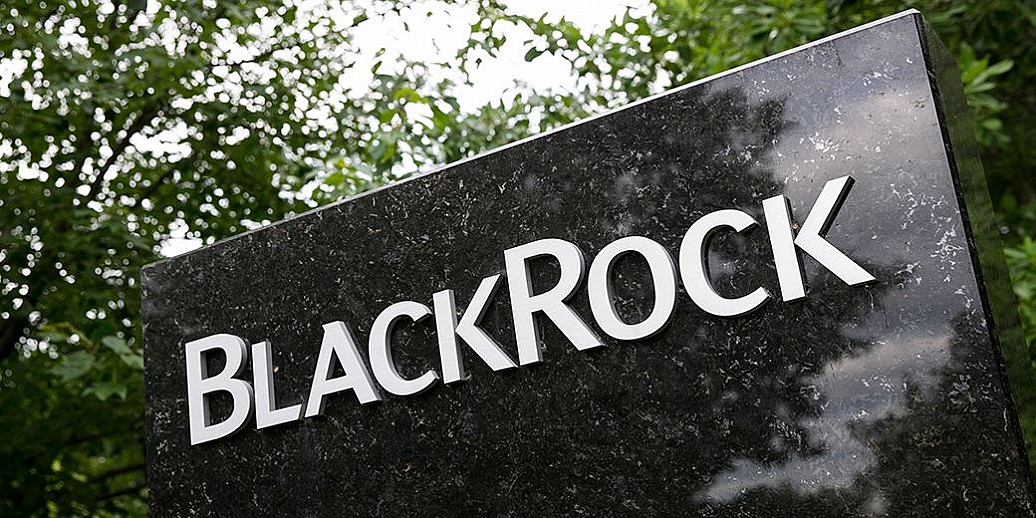BlackRock’s Digital Asset ETFs Surpass Grayscale in AUM
18.08.2024 10:00 2 min. read Alexander Stefanov
BlackRock, recognized as a leading global asset manager, recently reached a significant milestone:
Its digital asset exchange-traded funds (ETFs) have now surpassed those of longtime leader Grayscale in total assets under management (AUM).
Although BlackRock only offers two funds – IBIT (spot Bitcoin ETF) and ETHA (spot Ethereum ETF) – their combined AUM of $21.6 billion slightly exceeds the $21.3 billion managed by Grayscale’s four funds: GBTC, BTC Mini, ETHE and ETH Mini, according to Arkham Intelligence.
Morgan Stanley recently disclosed that it has nearly liquidated its $269.9 million position in GBTC, currently holding 5.5 million shares of IBIT, valued at approximately $187.1 million at current prices. Similarly, Goldman Sachs disclosed last week that it holds nearly 7 million shares in IBIT worth about $235 million, in addition to approximately $35 million in the Grayscale convertible fund and about $150 million in other spot BTC ETFs.
Nate Gerassi, president of investment adviser The ETF Store, noted on Platform X that BlackRock’s IBIT has experienced just one day of net outflows since launch. That observation is backed by SoSoValue data, though the ETF has also logged 26 days with no moves to date.
While IBIT is currently the leader among spot bitcoin ETFs, BlackRock’s spot ethereum fund, ETHA, ranks only third in AUM, based on SoSoValue data. Although ETHA has yet to have any days with negative outflows, it has had four days with net-zero trading since launching on July 22, nearly a month ago.
-
1
Key U.S. Events to Watch This Week That Could Impact Crypto
30.06.2025 11:00 2 min. read -
2
Here Is How Your Crypto Portfolio Should Look Like According to Investment Manager
30.06.2025 10:00 2 min. read -
3
SoFi Returns to Crypto with Trading, Staking, and Blockchain Transfers
27.06.2025 8:00 1 min. read -
4
GENIUS Act Could Reshape Legal Battle over TerraUSD and LUNA Tokens
30.06.2025 9:00 1 min. read -
5
Whales Buy the Dip as Retail Panics: This Week in Crypto
29.06.2025 14:00 3 min. read
Bank of England Governor Warns Against Stablecoins, Backs Tokenized Deposits Instead
Bank of England Governor Andrew Bailey has voiced strong concerns about the rising push for stablecoin adoption, calling on banks to steer clear of issuing their own digital currencies.
Czech National Bank Enters Crypto Sector with $18M Coinbase Investment
The Czech National Bank (CNB) has entered the crypto sector with a $18 million investment in Coinbase, purchasing 51,732 shares in Q2 2025, according to a U.S. SEC filing.
Weekly Roundup: What Happened in Crypto Over the Past Week
From groundbreaking Ethereum developments to record-breaking DeFi activity and major protocol updates, the crypto industry saw a flurry of important announcements this past week.
Pump.fun Raises $600M in Record-Breaking PUMP Token Sale
Memecoin launchpad Pump.fun has stunned the crypto market by pulling off one of the fastest initial coin offerings (ICOs) in history.
-
1
Key U.S. Events to Watch This Week That Could Impact Crypto
30.06.2025 11:00 2 min. read -
2
Here Is How Your Crypto Portfolio Should Look Like According to Investment Manager
30.06.2025 10:00 2 min. read -
3
SoFi Returns to Crypto with Trading, Staking, and Blockchain Transfers
27.06.2025 8:00 1 min. read -
4
GENIUS Act Could Reshape Legal Battle over TerraUSD and LUNA Tokens
30.06.2025 9:00 1 min. read -
5
Whales Buy the Dip as Retail Panics: This Week in Crypto
29.06.2025 14:00 3 min. read


